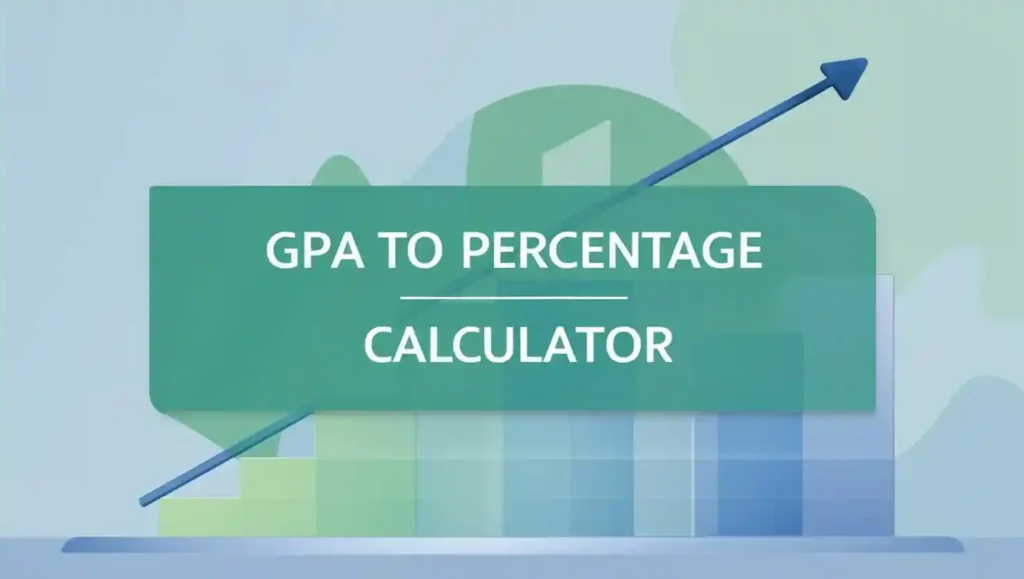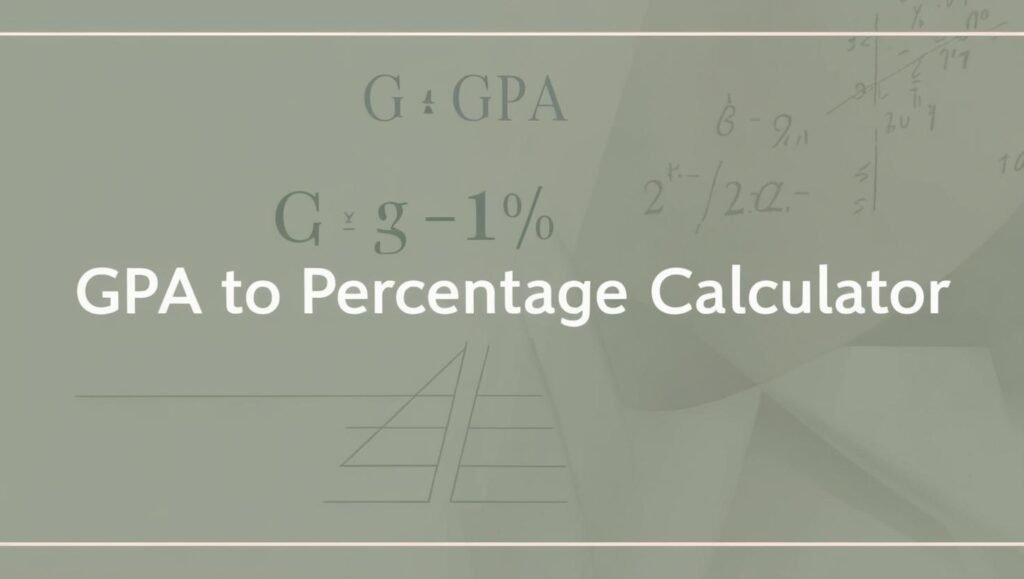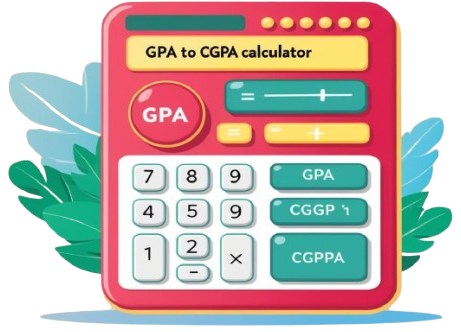GPA to Percentage Calculator

Grade Point Average (GPA) to Percentage Calculator
GPA (Grade Point Average) is a widely used grading system in educational institutions worldwide. However, many universities and employers require percentage scores for evaluation. This Calculator helps students convert their GPA into a percentage using standardized formulas.
Formula for Grade Point Average (GPA) to Percentage Conversion
The conversion formula can vary depending on the university, but a common approach is:
Percentage=GPA×9.5\text{Percentage} = \text{GPA} \times 9.5Percentage=GPA×9.5
For example, if your GPA is 8.0, then:
8.0×9.5=76%8.0 \times 9.5 = 76\%8.0×9.5=76%
Why Convert GPA to Percentage?
- Academic Applications: Some universities require percentage-based grades for admissions.
- Job Applications: Employers may prefer percentage scores over GPA for clarity.
- Scholarships & Eligibility: Certain scholarships have minimum percentage requirements.
How to Use the GPA to Percentage Calculator?
- Enter your GPA in the calculator.
- Click the Convert button.
- View the converted percentage instantly.
This tool simplifies the process, ensuring accurate and quick conversion for students and professionals alike.
GPA to Percentage Calculator Table
| GPA | Percentage (%) |
|---|---|
| 10.0 | 95.0 |
| 9.5 | 90.3 |
| 9.0 | 85.5 |
| 8.5 | 80.8 |
| 8.0 | 76.0 |
| 7.5 | 71.3 |
| 7.0 | 66.5 |
| 6.5 | 61.8 |
| 6.0 | 57.0 |
| 5.5 | 52.3 |
| 5.0 | 47.5 |
You can Visit our other Calculators

A Grade Point Average (GPA) Calculator is a valuable tool used by students, teachers, and educational institutions to measure academic performance. GPA represents a student’s average performance across courses, typically on a scale of 4.0, 5.0, or even higher in some systems. Converting GPA to percentage is essential for students applying to universities or jobs that require percentage-based grading. Different educational institutions use different conversion formulas, but the most common method involves multiplying the GPA by a fixed factor (e.g., for a 4.0 scale, GPA × 25 gives the percentage). This conversion helps in comparing academic records across different grading systems, ensuring a standardized evaluation process.
Using a GPA to Percentage Calculator is simple and efficient. Students need to enter their GPA based on their institution’s grading scale, and the calculator automatically converts it into a percentage using the appropriate formula. This tool eliminates manual calculations, reducing errors and saving time. Understanding GPA conversion is crucial for students applying for higher education, scholarships, or job opportunities in countries that require percentage-based grading. By using a GPA calculator, students can ensure they present their academic scores accurately and in a format that is widely recognized.
Frequently Asked Questions (FAQs)

Conclusion
To sum up, a GPA to Percentage Calculator is a crucial resource for students looking to understand their academic standing and get ready for new chances. It makes it easier to meet standards for university admission, scholarship applications, and employment eligibility by streamlining the process of converting GPA into percentage. Students can confidently present their academic accomplishments in a way that is universally understandable with the help of precise and speedy computations. In the end, this tool will help people accomplish their academic and professional objectives by removing misunderstanding and guaranteeing that their results are appropriately interpreted across various grading systems.
